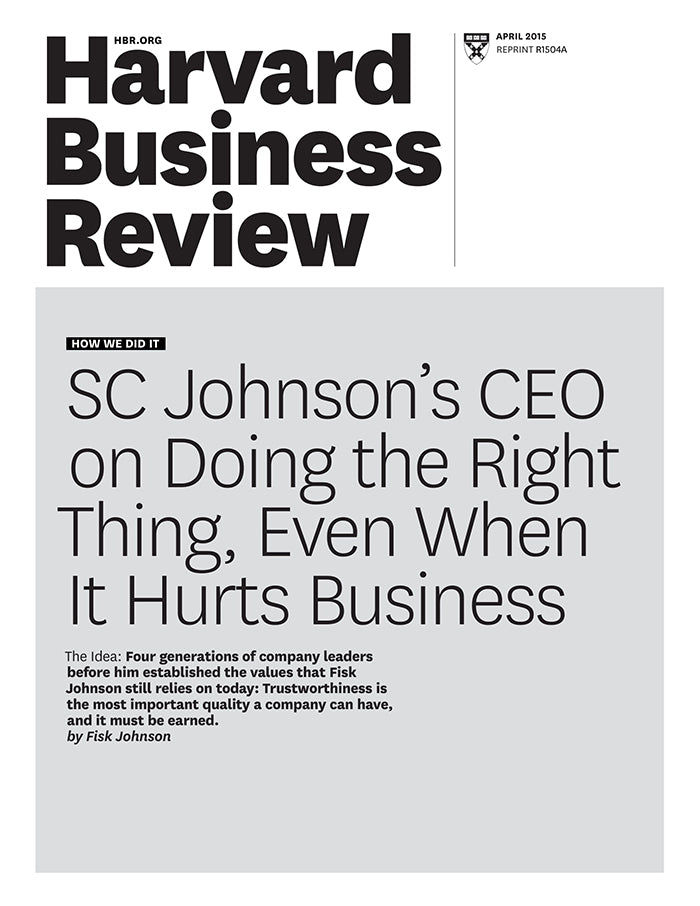SC Johnson's CEO on Doing the Right Thing, Even When It Hurts Business
受取状況を読み込めませんでした
Mindful of his company's long history of sensitivity to the environmental or health effects of the chemicals in its products, the author decided to risk losing sales by reformulating Saran Wrap. SC Johnson had acquired it from Dow in 1998, and the product's superior microwavability and impenetrable barrier to odor made it the market leader for decades. Polyvinylidene chloride (PVDC) was responsible for both those unique differentiators. When the U.S. Food and Drug Administration, environmental groups, and consumers began to express concern over the use of polyvinyl chloride (PVC), the difference between PVC and PVDC got lost in the discussion. Nevertheless, the company was concerned as well, because it used PVCs in some of its external packaging. It launched a process called Greenlist to help it reevaluate their inclusion. Since then Greenlist has been rigorously updated to sort ingredients according to category and rank them for impact on human and environmental health. The company has removed potentially hazardous products many times--and taken whatever hit accompanied each instance. It could have simply eliminated PVCs from the product packaging and left Saran Wrap as it was. Instead it pledged to stop selling wraps that contained chlorine of any kind, including PVDCs, by 2004. A dedicated research, development, and engineering team was assigned to try to re-create Saran Wrap without PVDCs within a year. But preserving its unique characteristics proved impossible, and this once iconic product became an also-ran.
【書誌情報】
ページ数:6ページ
サイズ:A4
商品番号:HBSP-R1504A
発行日:2015/4/1
登録日:2015/4/3


